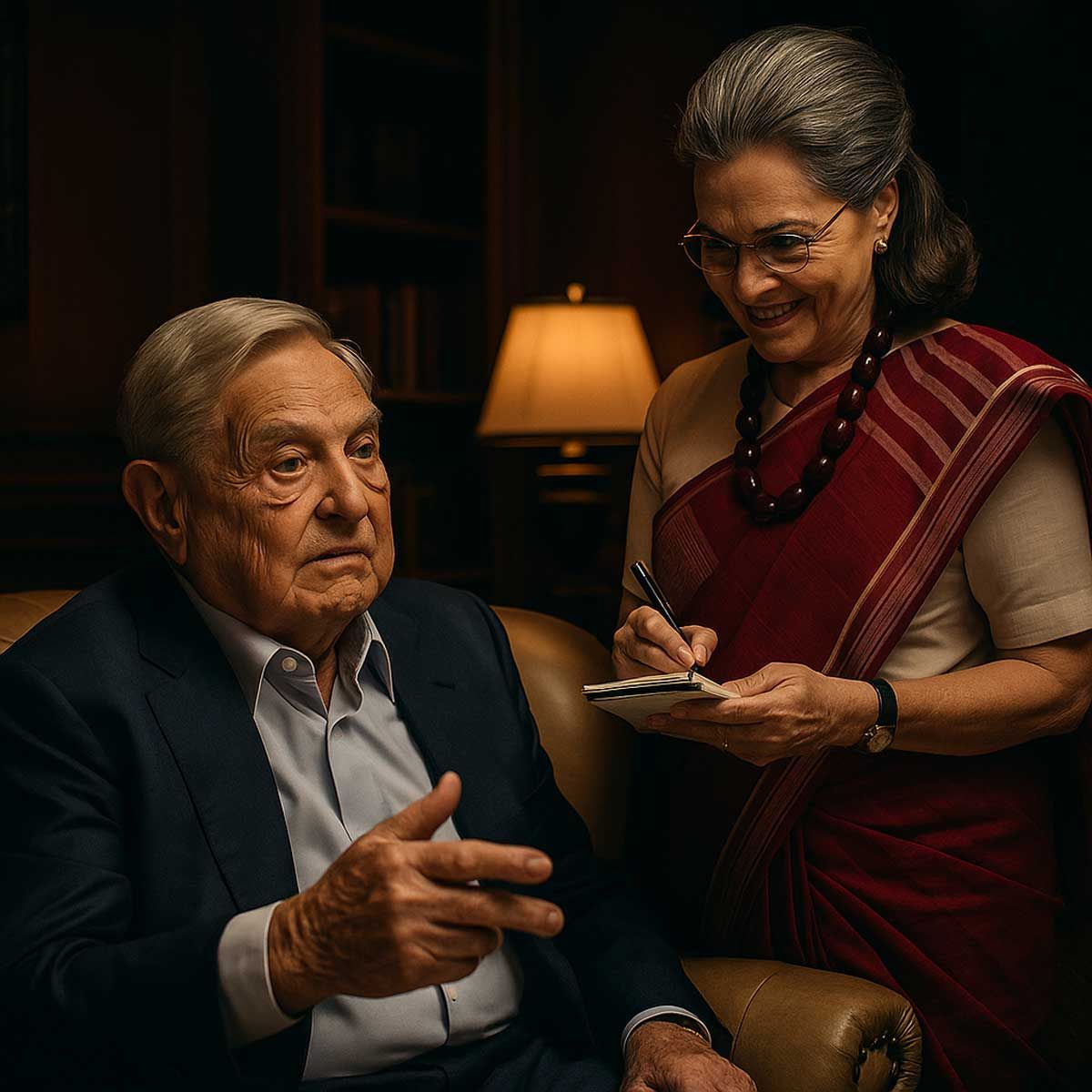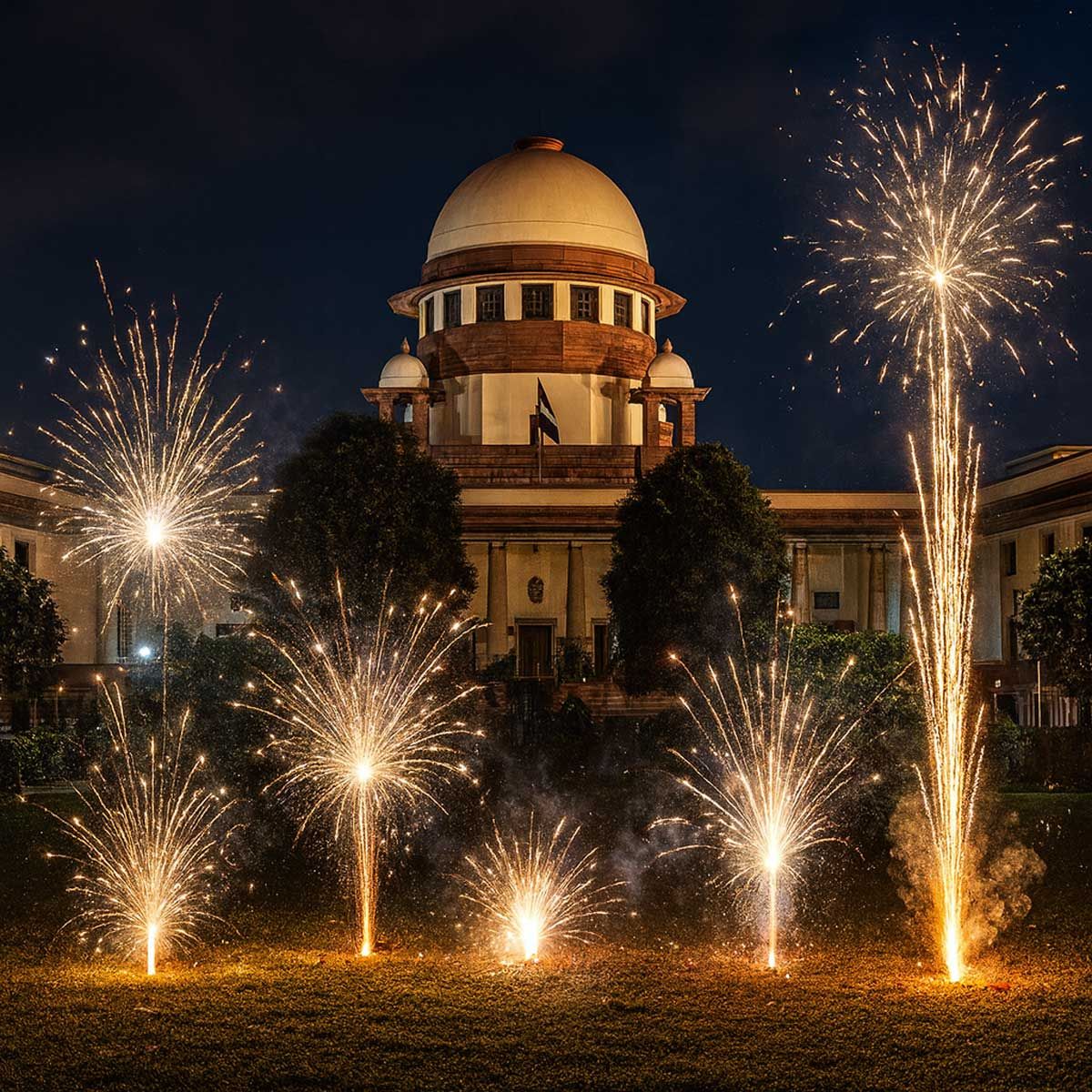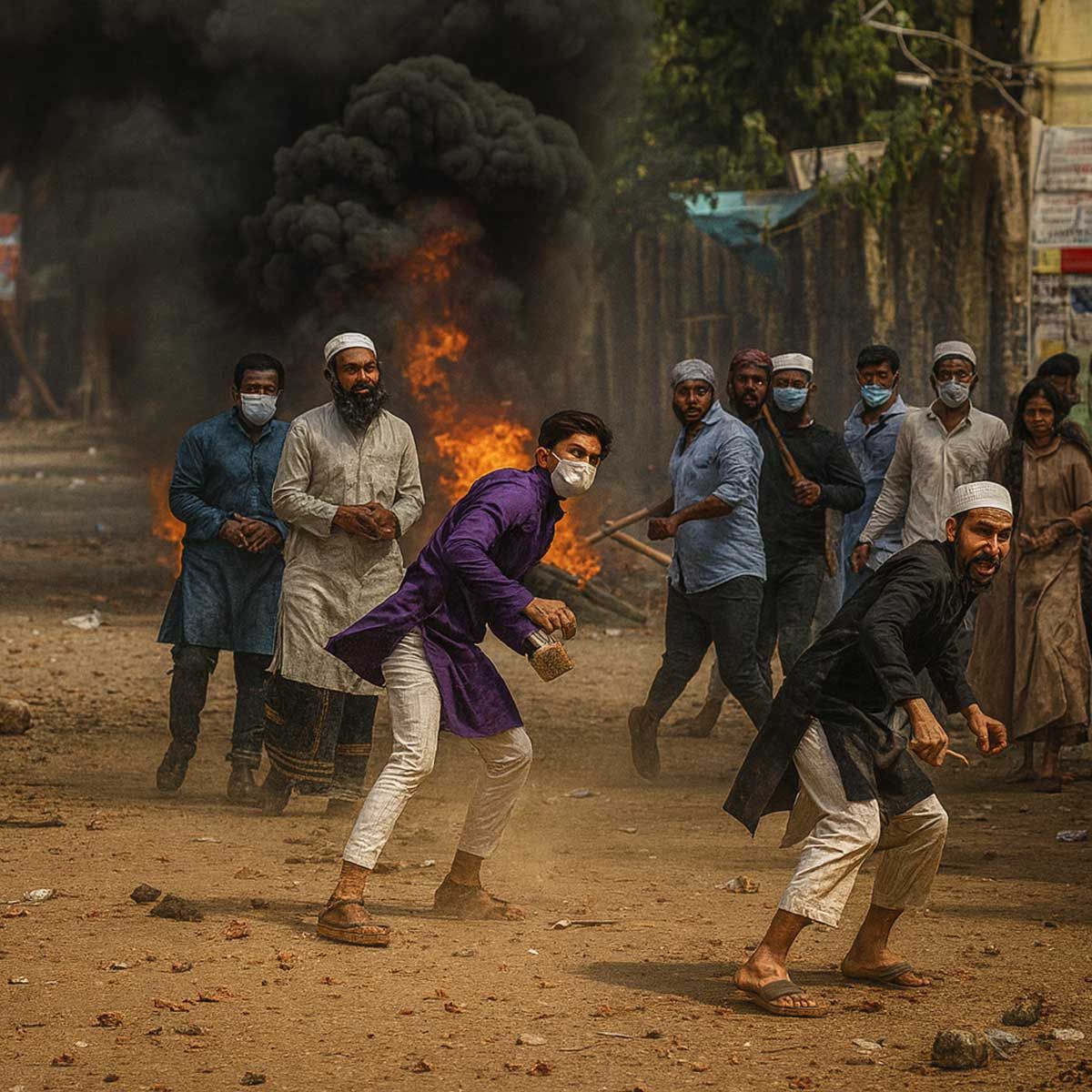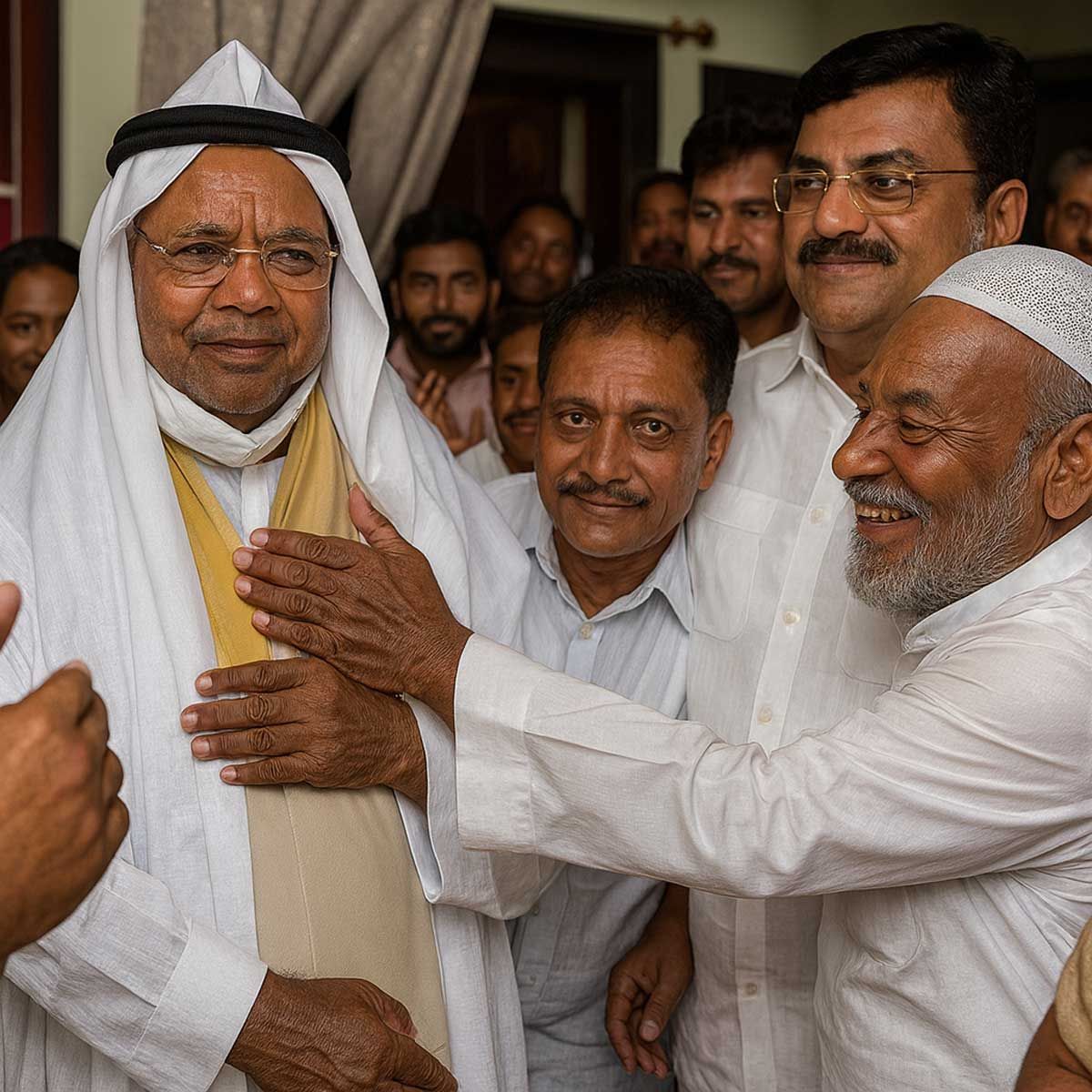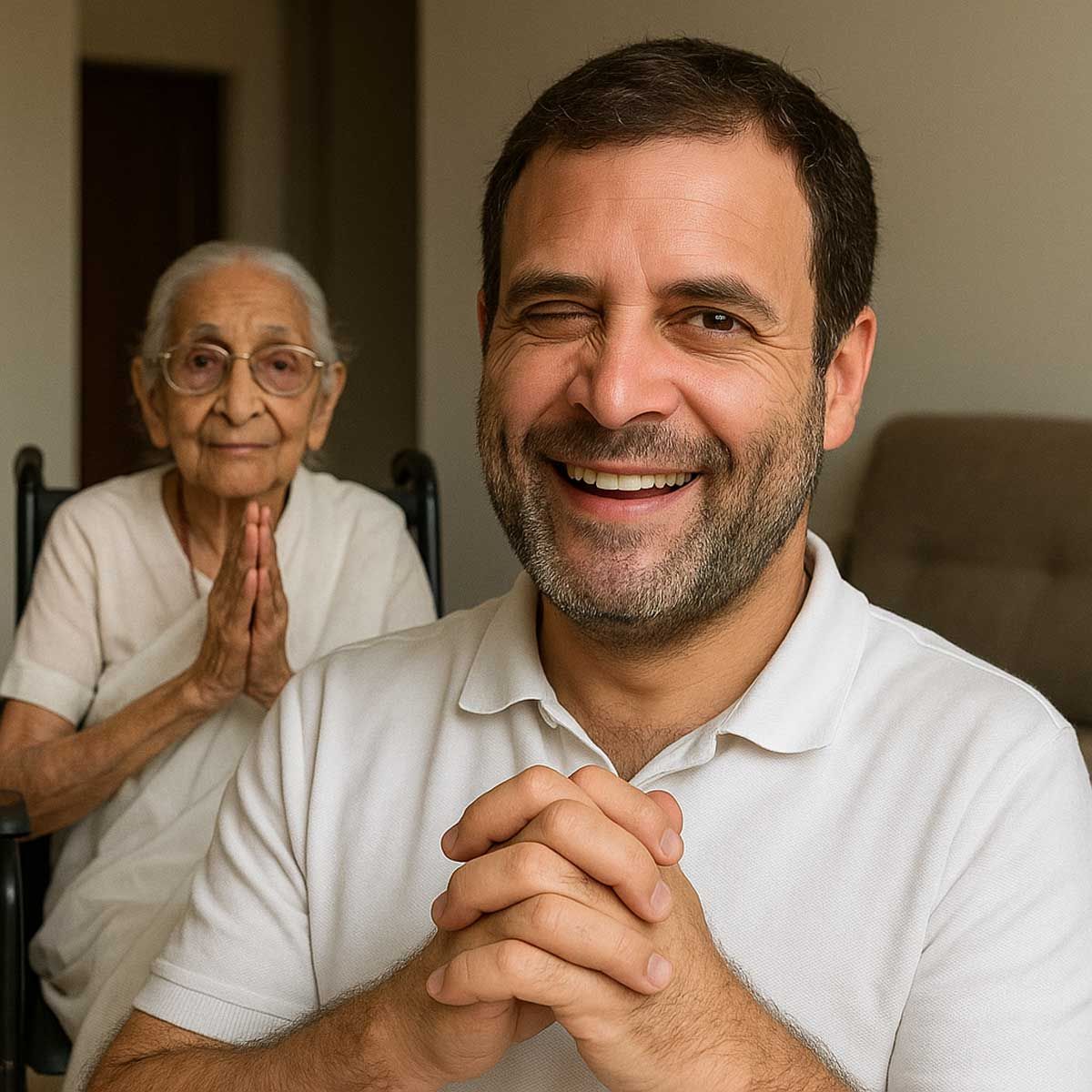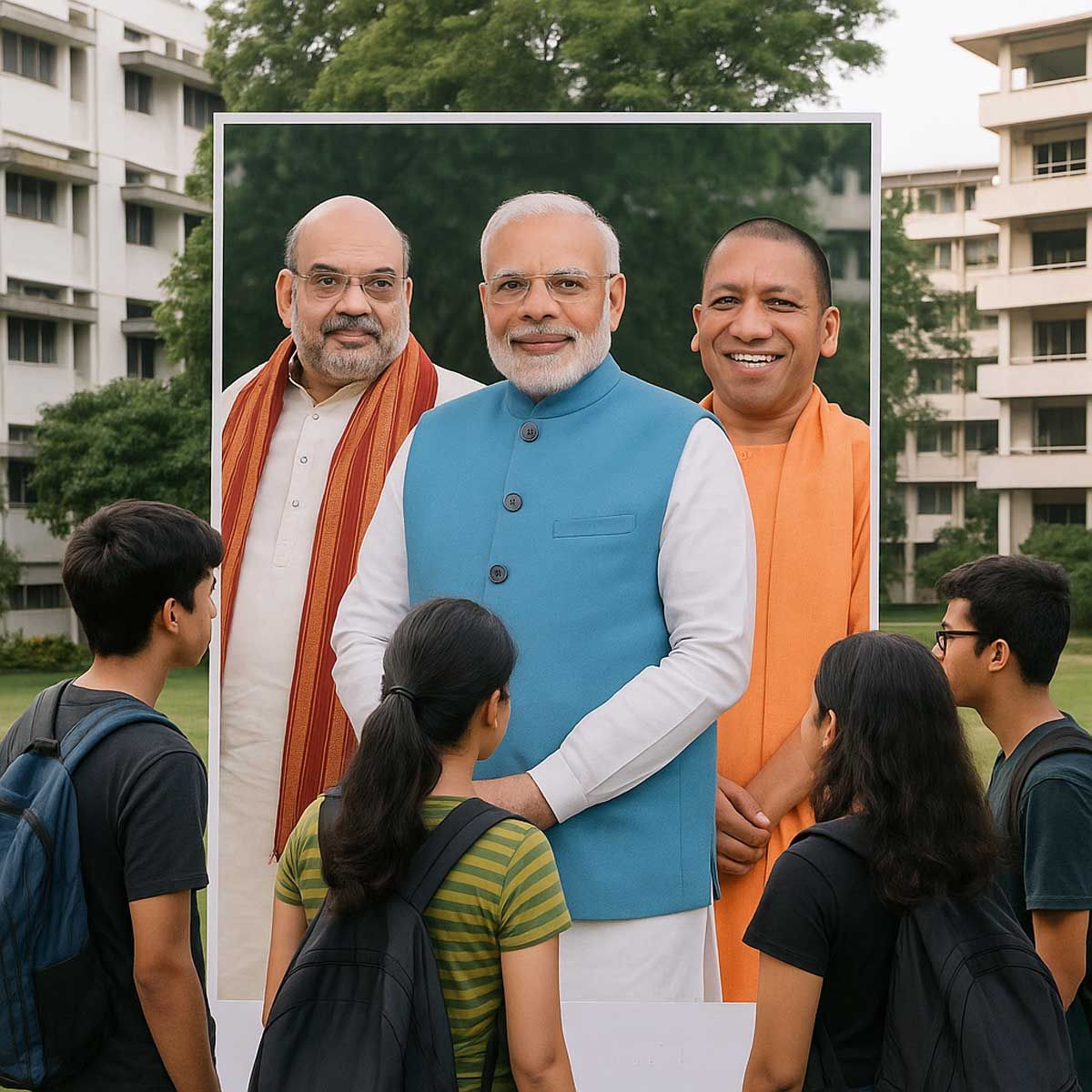More Coverage
Twitter Coverage
Satyaagrah
Written on
Satyaagrah
Written on
Satyaagrah
Written on
Satyaagrah
Written on
Satyaagrah
Written on
JOIN SATYAAGRAH SOCIAL MEDIA
“Doctor Death”: Devendra Sharma, an Ayurvedic doctor turned serial killer, confessed to over 50 murders, fed victims to crocodiles, ran a kidney racket, jumped parole, and finally caught in Rajasthan posing as a spiritual guru after months on the run
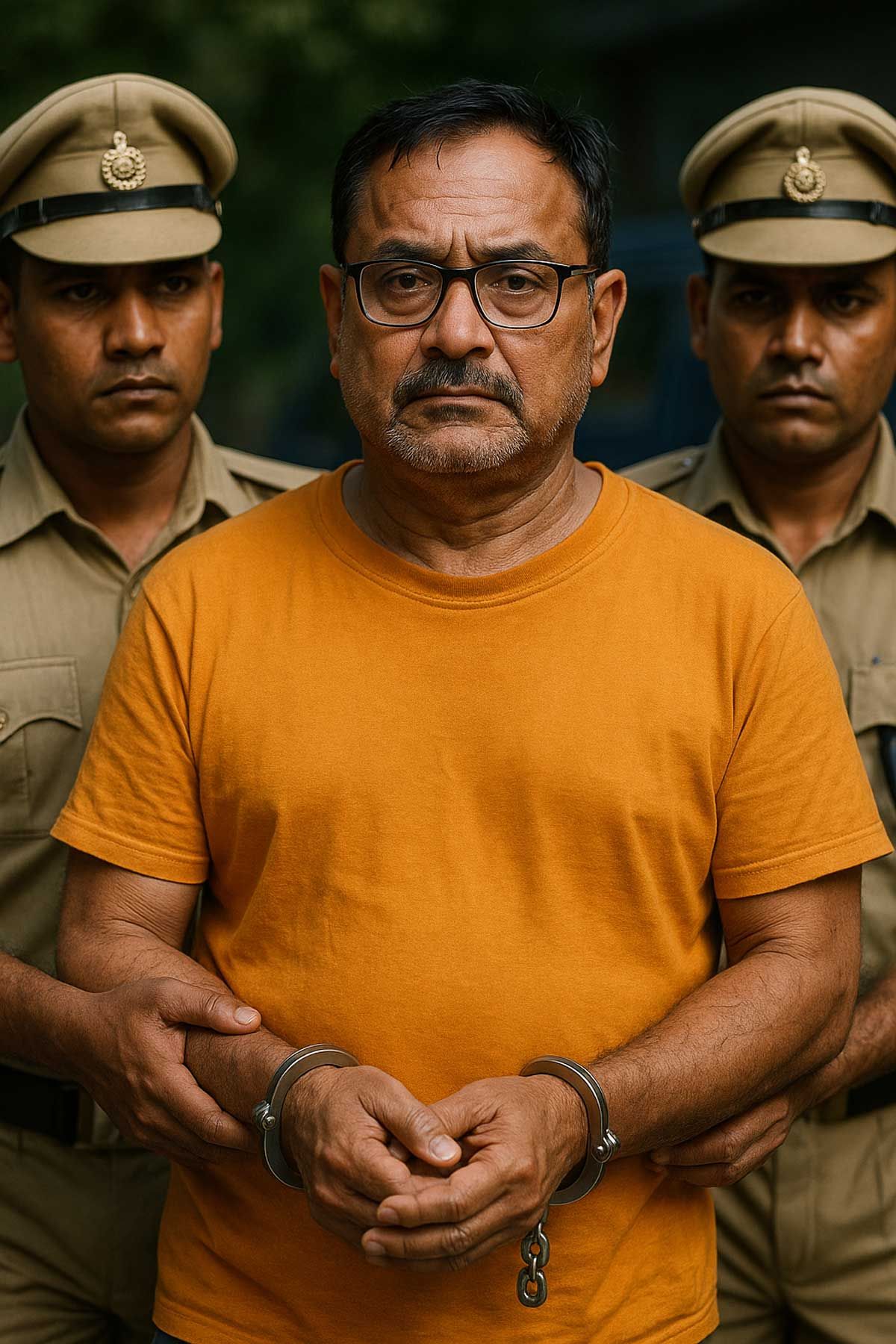
On May 20, 2025, the Delhi Police’s Crime Branch tracked down and arrested a notorious criminal known as Doctor Death, Devendra Kumar Sharma, in a quiet ashram in Rajasthan’s Dausa district. This 67-year-old man, whose name sends shivers down the spine, has a chilling history of violence and deception. “He has been accused of killing over 100 men, primarily taxi drivers,” dumping their bodies into crocodile-infested canals to erase evidence of his brutal crimes.
Beyond murder, Sharma ran an illegal kidney transplant racket that exploited vulnerable people for profit. When police finally caught up with him, he was hiding under a false identity, dressed as a spiritual guru, blending into the serene surroundings of the ashram. The arrest marked the end of a nearly year-long manhunt that took officers across cities like Delhi, Aligarh, Jaipur, Agra, and Prayagraj, piecing together clues to find this elusive killer.
Sharma’s story is one of a man who started as a healer but became a monster. Once a qualified practitioner with a Bachelor of Ayurvedic Medicine and Surgery (BAMS), he earned the grim nickname Doctor Death after his dark deeds came to light. “He murdered dozens of taxi drivers and threw their bodies for crocodiles to feast on,” a revelation that horrified the nation. His legal battles have dragged on for years, with courts delivering harsh punishments. So far, he has been sentenced to life imprisonment in seven separate murder cases and even faced the death penalty in one. Yet, despite his horrific record, Sharma has slipped through the cracks of justice not once, but twice, by absconding during parole. This latest arrest is the second time he’s been caught after fleeing parole, a pattern that raises questions about how such a dangerous man was allowed temporary freedom.
The operation to capture Sharma was no small feat. Delhi Police’s Crime Branch, led by Deputy Commissioner of Police (Crime Branch) Aditya Gautam, worked tirelessly to track him down. On Tuesday, May 20, 2025, Gautam publicly confirmed the arrest, detailing how Sharma had been living a double life, posing as a holy man to evade capture. The police team’s determination paid off after months of chasing leads across multiple states, finally cornering Sharma in the unlikeliest of places—an ashram where he played the part of a spiritual leader. His arrest brings a sense of relief to communities haunted by his crimes, but it also reignites the chilling memory of his blood-soaked past.
|
From Failed Dreams to a Life of Crime
Devendra Kumar Sharma, now 67, was not always the feared Doctor Death. Born in Pureni village in Aligarh, Uttar Pradesh, he once had dreams of helping people through medicine. In 1984, he completed his Ayurvedic studies in Bihar and returned to Rajasthan to open a small clinic called Janata Clinic in Dausa. For over a decade, he treated patients, building a modest life as a healer. But everything changed in 1994 when a devastating financial blow struck. Sharma invested ₹11 lakh—his life savings—in a gas dealership, only to be swindled in a cruel scam. “He lost ₹11 lakh, leading to a financial debacle after he became a victim of a gas dealership fraud,” a loss that shattered his world and set him on a dark path.
The betrayal seemed to break something in Sharma. By 1995, he had abandoned the oath to do no harm and dove headfirst into a life of crime. He started by running a fake gas agency, deceiving people just as he had been deceived. But his criminal ambitions grew far more sinister. “He was also accused of running a gruesome kidney transplant racket.” Between 1998 and 2004, Sharma teamed up with a doctor named Amit, orchestrating over 125 illegal kidney transplants. They preyed on impoverished people from Bihar, Bengal, and Nepal, luring them with promises of quick cash in exchange for their kidneys. For Sharma, the money—ranging from ₹5 lakh to ₹7 lakh per transplant—was a temptation too great to resist. But even this lucrative racket wasn’t enough to satisfy his greed. He wanted more, and what followed was a descent into unimaginable violence.
A Chilling Method of Murder
By the late 1990s, Sharma’s criminal empire took a horrifying turn. He formed a gang and transformed into a cold-blooded serial killer with a method so gruesome it defies belief. “He and his associates would pose as passengers and hire taxis for outstation trips.” The drivers, unaware of the danger, thought they were simply taking customers to places like Aligarh or other towns in Uttar Pradesh. But once the taxi reached a secluded spot, the trap was sprung. Sharma and his gang would brutally beat the driver to death, showing no mercy. The stolen vehicles were then sold in the grey market for ₹20,000 to ₹25,000 each, a quick profit for the killers. To ensure no evidence remained, they disposed of the bodies in the Hazara Canal in Kasganj, a waterway infested with crocodiles, where the animals would consume the remains, leaving nothing for investigators to find.
Sharma’s confessions to the police paint a picture of a man who lost all sense of humanity. “He stopped counting after 50 murders,” he admitted, suggesting the true number of his victims could be far higher—possibly over 100, as investigators suspect. A senior police officer, shaken by Sharma’s lack of remorse, noted, “He enjoyed the bloodshed,” revealing the chilling mindset of a killer who took pleasure in his crimes. The Hazara Canal became a grim symbol of his brutality, a place where countless lives were erased by crocodiles, leaving families without closure and police with little evidence to build cases. Sharma’s ability to evade justice for so long only deepened the tragedy of his victims.
|
Caught, Jailed, and Freed—Only to Flee Again
Sharma’s reign of terror came to a temporary halt in 2004 when he was arrested for both the illegal kidney transplant racket and the murders of taxi drivers. The courts showed no leniency, sentencing him to life imprisonment in seven separate murder cases across Delhi, Rajasthan, and Haryana. In 2008, a Gurugram court went further, handing him a death sentence for the murder of taxi driver Naresh Verma. In another case, he received the death penalty for killing Kamal Singh in 2002. These punishments reflected the severity of his crimes, yet justice seemed to falter when Sharma was granted parole—twice.
In January 2020, after serving 16 years in Jaipur’s Central Jail, Sharma was released on a 20-day parole for good behavior. But instead of returning, he vanished, remaining on the run for seven months until Delhi Police tracked him down in July 2020. Shockingly, history repeated itself in June 2023. Sharma was granted a two-month parole in a case registered at Sarita Vihar police station in Delhi, with a surrender date of August 3, 2023. Once again, he disappeared, leaving authorities scrambling to find him. His ability to slip away, even after such a gruesome criminal history, left many questioning how such a dangerous man could be given multiple chances at freedom. His latest capture in 2025, after hiding as a priest in a Rajasthan ashram, underscores the relentless effort of the Delhi Police to bring him back to justice.
A Manhunt Across States, a Fugitive Hiding as a Holy Man
When Devendra Kumar Sharma, the infamous Doctor Death, slipped away during his second parole in August 2023, he left the Delhi Police with a daunting task: finding a cunning fugitive who had already escaped justice once before. The Crime Branch sprang into action, launching a massive manhunt that stretched across five cities—Aligarh, Jaipur, Agra, Delhi, and Prayagraj—to track down the serial killer. For six long months, officers worked tirelessly, sifting through records, questioning contacts, and staking out suspicious locations. Every lead seemed to vanish into thin air, as Sharma had a knack for staying one step ahead. Finally, a breakthrough came in May 2025, pointing police to the quiet town of Dausa, Rajasthan, where Sharma was hiding in plain sight.
In Dausa, Sharma had reinvented himself as a “spiritual guru”, blending seamlessly into the community. Dressed in flowing robes and speaking words of wisdom, he drew no suspicion from locals who saw him as a holy man offering guidance. It was a perfect disguise for a man with blood on his hands, one that allowed him to live unnoticed for months. The police, acting on their tip, moved cautiously to confirm his identity. When they finally closed in, Sharma’s charade crumbled, and he was arrested on May 20, 2025, and brought back to Delhi to face justice once more. This was the second time in just three years that law enforcement had to dedicate months to capturing a man already convicted of multiple murders and sentenced to death. The fact that Sharma, a known killer, could evade capture for so long left many wondering how he managed to exploit the system again.
The manhunt was a testament to the determination of the Delhi Police, who refused to let Sharma disappear into the shadows. Officers worked long hours, following every clue, from phone records to whispers from informants. Their persistence paid off, but the operation highlighted the challenges of tracking a criminal as slippery as Sharma. His ability to assume a false identity and hide in a place as unassuming as an ashram showed just how dangerous he remained, even after years behind bars. For the families of his victims, the arrest brought a glimmer of hope, but it also stirred painful memories of a man who had caused so much grief.
Escaping Justice: Acquittals in a Flawed System
Despite his gruesome record, Devendra Kumar Sharma has managed to slip through the cracks of India’s legal system, walking free in two high-profile murder cases due to technicalities and insufficient evidence. These acquittals, both handed down in 2012, reveal the challenges of securing convictions against even the most notorious criminals when investigations falter.
In one case, related to the murder of taxi driver Kamal Singh, the Punjab and Haryana High Court overturned Sharma’s conviction, delivering a shocking acquittal. The court ruled that “there was no dead body, no forensic link, and no conclusive circumstantial chain” to tie Sharma to the crime. The prosecution’s case relied heavily on Sharma’s own statements and items recovered by police, but these were deemed unreliable. To make matters worse, Kamal Singh’s brother, a key witness, turned hostile during the trial, contradicting earlier statements and weakening the case. Without solid evidence, the court had no choice but to let Sharma walk free, leaving Singh’s family devastated and searching for answers.
In another 2012 case, Sharma was acquitted in the murder of a man known as Bhagirath alias Lala. Here, too, the prosecution’s case unraveled. The court found that “the vehicle recovered could not be linked to the original stolen vehicle”, and there were no independent witnesses to verify the recovery of the victim’s personal belongings. The judges concluded that “circumstantial evidence did not form a complete chain”, allowing Sharma and two accomplices to escape punishment. These rulings were a bitter pill for those who knew Sharma’s history, as a man responsible for countless deaths slipped through the legal net once again.
These acquittals are a stark reminder of the gaps in India’s criminal justice system. “Both judgements serve as a grim reminder of how India’s legal system, when burdened by investigative lapses and uncorroborated statements, can fail to uphold even the most straightforward cases against a known serial killer.” For every conviction Sharma has faced, these failures highlight how difficult it can be to bring justice to victims when evidence is mishandled or witnesses back out. The families of Kamal Singh and Bhagirath, like so many others, are left with the pain of knowing that the man who took their loved ones’ lives has, at times, walked free due to systemic flaws.
 Support Us
Support Us
Satyagraha was born from the heart of our land, with an undying aim to unveil the true essence of Bharat. It seeks to illuminate the hidden tales of our valiant freedom fighters and the rich chronicles that haven't yet sung their complete melody in the mainstream.
While platforms like NDTV and 'The Wire' effortlessly garner funds under the banner of safeguarding democracy, we at Satyagraha walk a different path. Our strength and resonance come from you. In this journey to weave a stronger Bharat, every little contribution amplifies our voice. Let's come together, contribute as you can, and champion the true spirit of our nation.
 |  |  |
| ICICI Bank of Satyaagrah | Razorpay Bank of Satyaagrah | PayPal Bank of Satyaagrah - For International Payments |
If all above doesn't work, then try the LINK below:
Please share the article on other platforms
DISCLAIMER: The author is solely responsible for the views expressed in this article. The author carries the responsibility for citing and/or licensing of images utilized within the text. The website also frequently uses non-commercial images for representational purposes only in line with the article. We are not responsible for the authenticity of such images. If some images have a copyright issue, we request the person/entity to contact us at This email address is being protected from spambots. You need JavaScript enabled to view it. and we will take the necessary actions to resolve the issue.
Related Articles
- "जनता की याददाश्त": In a chilling recall of Kolkata's escalating violence, an unidentified woman’s brutally injured body found in Anandapur following the horrifying RG Kar Hospital rape & murder case, BJP slams Mamata Banerjee for failing to protect women
- "असीमित क्रूरता": Autopsy reveals Sanjoy Roy, a Kolkata police volunteer and trained boxer, slammed the doctor’s head against a wall, breaking her neck, while glass shards pierced her eyes as she fought to resist before being brutally raped and murdered
- "जाको राखे दीदी": CBI takes charge of the Kolkata rape case amid allegations of hospital evidence tampering, with BJP accusing officials of destroying the crime scene under the guise of renovation; the victim's family was misled about her tragic murder
- "Reclaim the Night": A seismic movement echoing across West Bengal under CM Mamata Banerjee, poised to profoundly shake the govt's roots in response to the brutal rape and murder of a doctor, left with a broken neck, damaged eyes & severe genital injuries
- "पैसा बोलता है": Khyati Hospital exploited PM-JAY by performing unnecessary angioplasties on healthy villagers at free camps, causing deaths, Dr. Vazirani, Dr. Patel, and others face charges of fraud and culpable homicide amid growing outcry in Gujarat
- History-sheeter Shamsher Khan murders friend Shivdatt, suspected of an affair with his live-in partner Asha Thakur, murder comes to light after 8 months: MP
- “She certainly did not kill enough. I will try to fix that”: In a tragic Prague university attack, 24-year-old student kills 15, including his father, injures 20+, was inspired by past Russian-inspired shootings; an unforgettable chapter in Czech history
- Mohammed Ansari brutally murders 18-year-old NEET aspirant 'girlfriend' Sonam Shukla and dumps the body in a creek in Malad hoping body would be eaten by fishes: Arrested and confessed to his crime
- "There is no honor in violence, as it resides in compassion, understanding, and love": Horrific honor killing shakes India: Brother Mohammad Riyaz had issues with her sister Ashifa Bano over her love affair with Mohd Chand in UP of same caste & religion
- "तेरे जैसा यार कहां, कहां ऐसा याराना": Ankit Meena met a brutal end as his face crushed with stones first, then had his throat slit; his longtime acquaintance Salman and two minors are now under arrest amid revelations of a deep-seated rift over a girl
- "आख़िरी ख़बर": Journalist Mukesh Chandrakar, 28, exposed Bijapur's road scam, leading to an inquiry; he was found murdered in a septic tank on contractor Suresh Chandrakar’s property, while CM Sai vowed swift justice, and journalists mourn the loss
- Martyr: Yet another police man Dharambir Yadav crushed to death in the fight against deadly cattle smuggling mafia with its tentacles all over Bharat, left-liberal Lutyens’ lobby exercises immense influence over government and judiciary
- Islamic State terrorist organization ISIS seized 700 boys trapped in a Syrian prison and took them as human shields, NGO calls for their safe evacuation amid intense fight
- "I was upset… you know": Islamist Miyandoab shouting ‘Allahu Akbar’ kills 1, injures 2 others in a knife attack near Eiffel Tower, had spent 4 years in prison earlier for planning a violent attack, was under surveillance and receiving psychiatric therapy
- Charlie Kirk fatally shot at Utah Valley University in Orem, thousands witness killing of activist known for opposing Marxism and Islamism, sparking national outrage
















